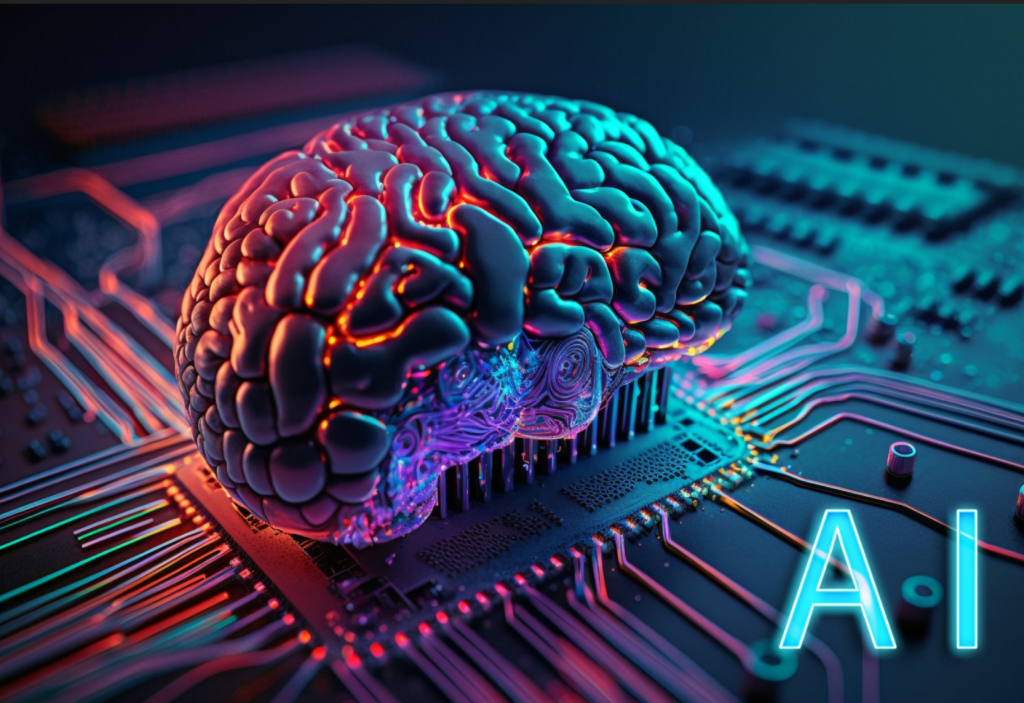Operations management is about finding ways to do things more efficiently, precisely and smoothly. It includes a broad range of activities, such as planning, organizing, inventory and supply chain management, production scheduling, quality control, logistics and the effective running of processes and asset maintenance. Today, these functions share a common thread: they’re ripe for improvement through artificial intelligence (AI).
AI, the technology that enables computers and machines to simulate human intelligence and problem-solving capabilities, is transforming industries. In fact, 94% of business leaders in one survey said that AI would be critical to their success over the next five years. And because operations management is foundational to how a business functions and stays competitive, using AI productively is essential.
Why using AI for operations management matters
AI is a powerful tool for operations managers seeking to streamline processes, reduce costs and improve operational efficiency. AI-powered systems can analyze vast amounts of data, which enables real-time decision-making and the optimization of business processes. Such systems help operations managers discover bottlenecks, predict equipment failures and adapt to market trends.
AI can also provide actionable recommendations to address issues and augment incomplete or inconsistent data, leading to more accurate insights and informed decision-making. Developments in machine learning, automation and predictive analytics are helping operations managers improve planning and streamline workflows.
While the benefits of AI are clear, businesses must also be mindful of its challenges. These include data privacy concerns, regulatory compliance issues and the need for skilled personnel to manage AI technologies. Although AI can be adaptive and initiate important changes to processes without human input, human judgment must still validate its outputs and make higher-level strategic decisions. Often the most effective approach is to combine AI capabilities with human expertise.

10 ways AI can enhance operations management
Through careful planning and execution, businesses can harness the power of AI to reach better outcomes.
Demand forecasting and inventory management
AI uses advanced analytics to extract valuable insights and make forecasts. Machine learning models can analyze historical sales data, market trends, seasonality, weather patterns, social media sentiment and other factors to generate demand forecasts. For example, AI can analyze sales patterns and predict future sales, helping businesses maintain optimal inventory levels. One study found that AI-powered tools can reduce forecasting errors by up to 50% and reduce lost sales due to inventory shortages by up to 65%.
Supply chain optimization
Using AI in supply chain management can enhance decision-making and operational efficiency. AI allows businesses to process large amounts of data in real time, anticipate market trends, optimize logistics, and perform routing and scheduling based on changing conditions. It can also streamline workflows through automation, improve procurement, reduce disruptions and provide better end-to-end visibility and transparency.
The use of Internet of Things (IoT) devices across supply chain operations also provides AI systems with a wider range of data, leading to more comprehensive insights. IBM applied several of its AI-driven supply chain solutions to its own operations, leading to USD 160 million in savings and a 100% order fulfillment rate even during the peak of the COVID-19 pandemic.
Predictive maintenance
AI algorithms can analyze sensor data and historical maintenance records to predict equipment failure. AI can also help create failure mode and effect analysis (FMEA) models more efficiently, reducing the time and effort required to develop these studies. As a result, companies can schedule maintenance proactively to minimize downtime, extend assets’ lifespan and reduce operational costs. For example, a mining company used AI-driven solutions to predict maintenance needs, reducing production downtime by up to 30%.
Quality control
By training on historical data, AI models can quickly identify unusual patterns and outliers that might signal quality control issues. By connecting with data from cameras, drones, sensors and other edge devices, AI can resolve quality issues in real time. AI-powered visualizations and algorithms can detect product defects faster and more accurately than humans, sometimes identifying the root cause. In fact, one automobile manufacturer found that an AI-based visual inspection system identified defects with up to 97% accuracy, compared to 70% for human inspectors.

Customer service
AI-powered chatbots and virtual assistants can provide 24×7 service, resolving common issues and enhancing customer experience. This service can significantly improve customer satisfaction and retention. For example, Bouygues Telecom used generative AI to extract and analyze call center data, enabling workers to make personalized suggestions and solutions in real time. This personalized approach led to a 30% reduction in pre- and post-call operations and is projected to save over USD 5 million.
Training and staff support
AI chatbots can offer round-the-clock support to staff, providing data and answering common queries. They can help workers fix problems faster, improve first-time fix rates and enhance operational efficiency. This assistance supports institutional knowledge retention and helps overcome skill gaps. For example, AI and virtual reality can be used to create simulations that allow workers to practice skills safely before applying them in real situations. AI-powered training programs can provide personalized learning experiences, adapting content to match individual abilities and progress.
Automation
Robotic process automation (RPA) uses AI-powered bots to automate routine tasks that are rule-based and repetitive, such as data entry, invoice processing and customer service responses. Bots can extract data, fill out forms, generate reports and perform other routine activities, improving efficiency, reducing errors and freeing up the human workforce for more complex, strategic tasks. For example, Deloitte found that RPA reduced management report preparation from several days to just one hour and cut travel expense report prep time from three hours to 10 minutes.
Decision-making
AI can help with data-driven decision-making by analyzing large datasets and providing insights that humans might miss. Applied to big data, these advanced analytics can improve strategic planning, risk management and resource allocation. And with the advent of AI systems capable of natural language processing, businesses can gain deeper insights from unstructured data. The technology can predict potential risks, helping businesses prepare for potential challenges. AI-driven decision intelligence can be applied to use cases such as portfolio and price optimization.
AIOps
AIOps, or artificial intelligence for IT operations, uses AI to automate and streamline IT service management and operational workflows. IT applications, performance monitoring tools and infrastructure components can generate vast amounts of data. AIOps solutions can sort through this data to identify significant events and patterns, diagnose root causes and report them to IT and DevOps for rapid response and remediation or automatic resolution. For example, Electrolux employed AIOps to reduce IT issues resolution time from three weeks to an hour and saved more than 1,000 hours per year by automating repair tasks.
Sustainability
AI can help businesses reduce their environmental impact by optimizing resource use and identifying opportunities for energy efficiency and waste reduction. This approach, in turn, can lead to a reduction in a company’s carbon footprint and support its broader initiatives to stem greenhouse gas emissions. Advanced data analytics and report automation can simplify sustainability reporting and regulatory compliance.
AI in operations management: Next steps
More companies are finding ways to integrate artificial intelligence into their operations management. As advancements in AI and data science continue, we can expect more sophisticated methods of AI integration that will further advance business operations and provide new avenues to gain a competitive advantage.
Choosing the right AI tools and software solutions is critical to any digital transformation. The IBM Maximo Application Suite®®, for example, offers intelligent asset management, monitoring, predictive maintenance and reliability in a single platform. IBM Sterling Supply Chain Intelligence Suite® uses the power of AI to improve supply chain resilience and sustainability. And IBM offers a growing array of AI solutions to help businesses reimagine the future and build a competitive advantage.


